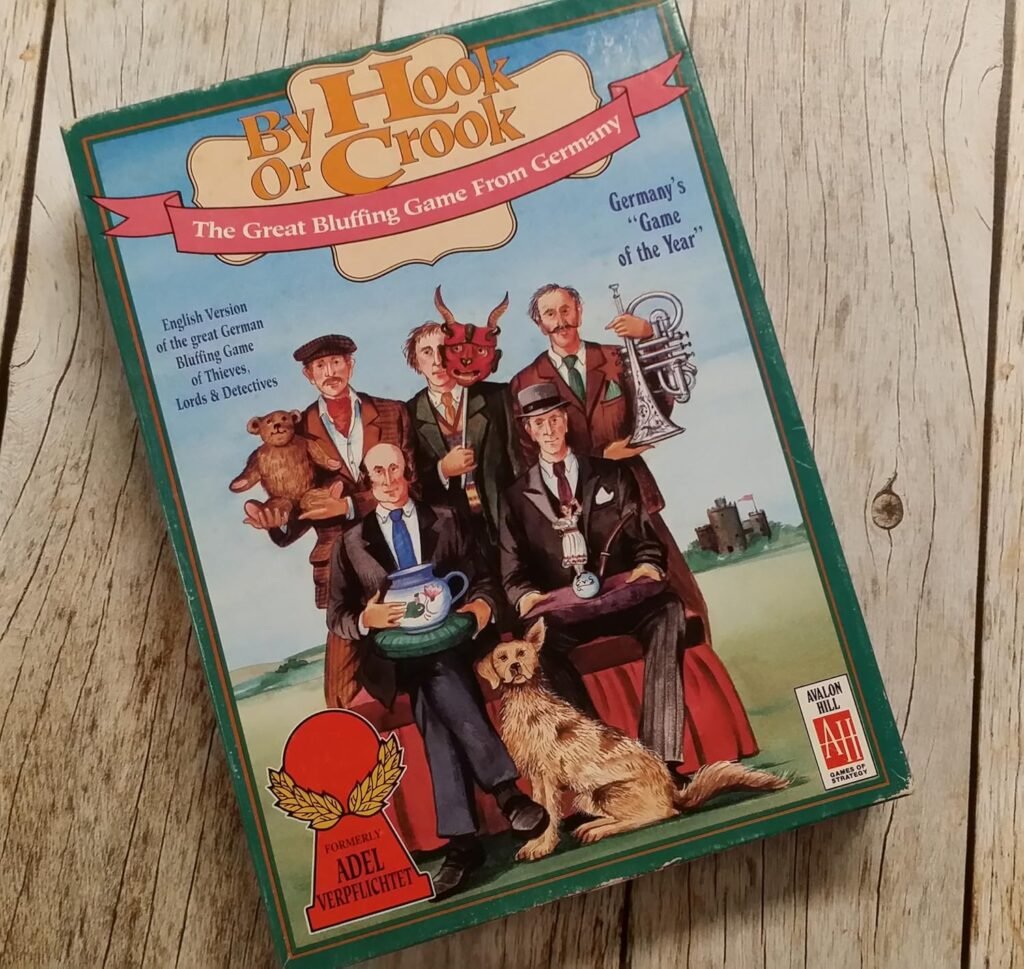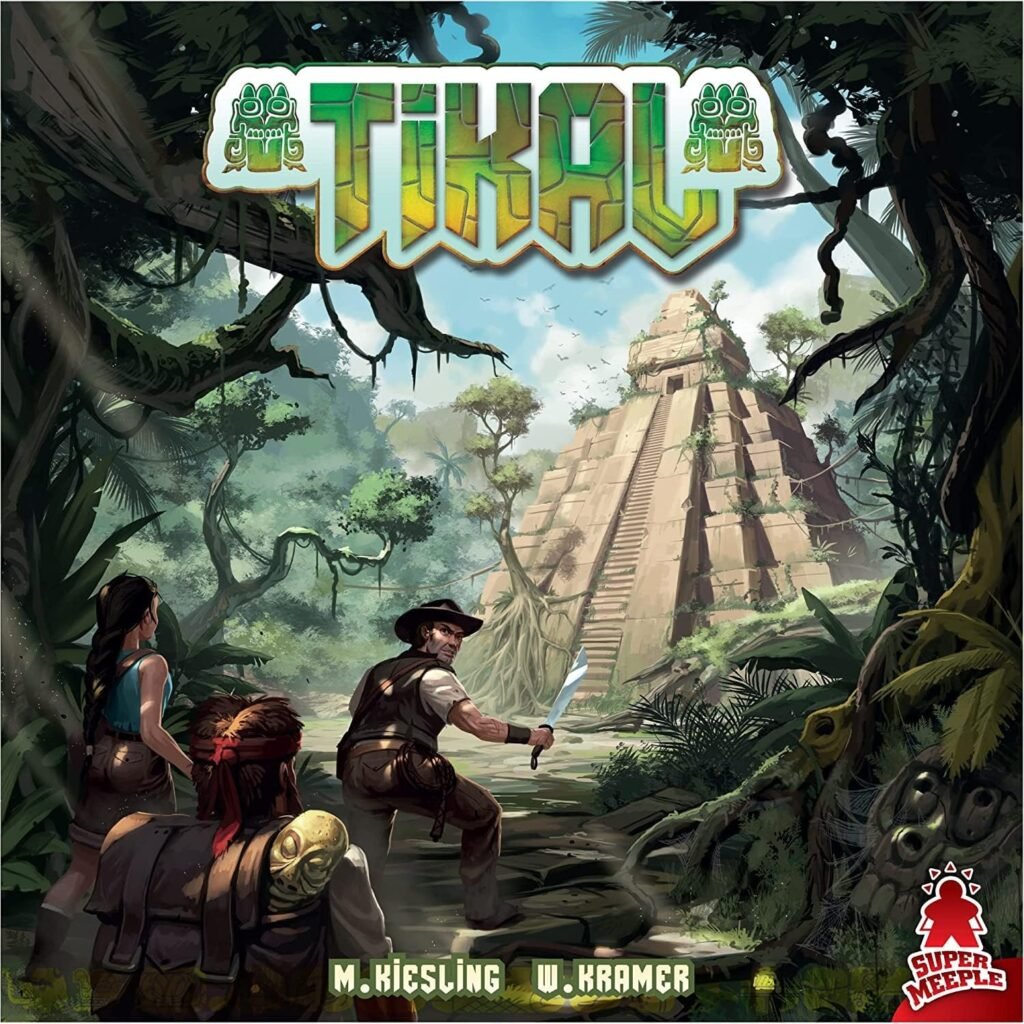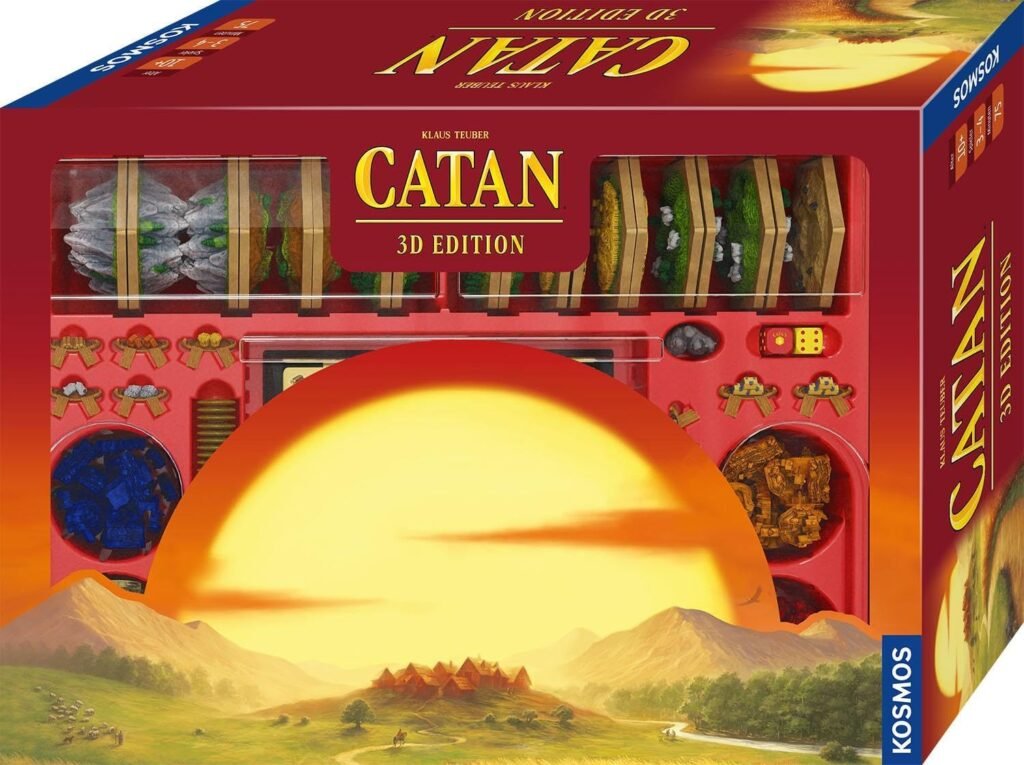
Introduction to German Board Games from the 1990s
Ah, the 1990s—a decade where scrunchies were high fashion, boy bands were the epitome of cool, and German board games quietly revolutionized our game nights. Forget Y2K; the real excitement was happening on tabletops around the world. German-style board games brought a blend of strategic depth and quirky themes that made even the most jaded players sit up and take notice.
But what made these games so compelling? Picture this: intricate gameplay that required more brainpower than a high school math test but was still accessible enough to not feel like one. The designers weren’t just making games; they were creating social experiences that got people talking, plotting, and occasionally flipping the board in a fit of competitive rage. They also came with themes that ranged from island settlements to jungle adventures and high-society shenanigans. Basically, there was something for everyone, whether you wanted to barter sheep or outmaneuver your friends in an archaeological dig.
And let’s not overlook the clever mechanics. These weren’t your run-of-the-mill roll-and-move games. No, these were the pioneers that introduced resource management, trading, and bluffing as core elements. They made you think, strategize, and, most importantly, engage with the people around you. Suddenly, game nights were less about who could get the highest roll and more about who could outwit whom.
Game 1: Diving into ‘Tikal’

Ready to channel your inner Indiana Jones? ‘Tikal’ whisks you away to the dense jungles of Central America, where your goal is to unearth ancient treasures and lost pyramids. You’ll be maneuvering your team of explorers, one strategic step at a time. The theme is so spot-on you might feel like grabbing a mosquito net.
The reason ‘Tikal’ struck gold (pun intended) is its perfect marriage of risk and reward. Warren Spector himself noted, “Once you’re hooked on Tikal, you can move on to the other games in Kiesling and Kramer’s ‘Mask’ trilogy” because they share some mechanics but also introduce new elements.
For many fans, the game is an addiction, and it’s not hard to see why. It’s got all the makings of a blockbuster: suspense, strategy, and a dash of betrayal as you one-up your pals in the race to unearth priceless relics. So grab your (figurative) shovel and get ready for a game that turns a lazy Sunday into a thrilling expedition. Who knew cardboard and plastic could make you feel so adventurous?
Game 2: Delving into ‘The Settlers of Catan’

Let’s talk about ‘The Settlers of Catan,’ the game that turned resource trading into an Olympic sport. Ever wanted to barter sheep like your life depended on it? This game made that dream a reality. Set on the fictional island of Catan, players gather and trade resources—wood, brick, wheat, ore, and, of course, those invaluable sheep—to build roads, settlements, and cities.
What made ‘Catan’ such a phenomenon? Well, it wasn’t just about luck and dice rolls. Nope, this game required actual brain cells. The introduction of resource management and trading mechanics was like a breath of fresh air in a room full of stale Monopoly boards. No longer were players just slaves to the dice; now, they could strategize, negotiate, and even sabotage each other’s plans.
The social aspect of ‘Catan’ also made it a staple in game nights everywhere. You couldn’t just rely on your own resources; you had to strike deals with your fellow players. It’s like the game was designed to test the limits of friendships and the depths of your persuasive skills. Want to see who in your friend group is the ultimate negotiator? Break out ‘Catan’ and watch the bartering madness unfold.
Its revolutionary mechanics influenced a tidal wave of similar German-style board games that prioritized strategy and player interaction over sheer luck. ‘Catan’ turned every player into a budding economist and a shrewd trader, making it a mainstay at game nights and proving that yes, even bartering for sheep can be thrilling.
Game 3: Unpacking ‘Adel Verpflichtet’

Welcome to the world of ‘Adel Verpflichtet,’ where you get to play the role of a snooty aristocrat trying to one-up your fellow high-society snobs. The goal? Collect the most impressive collection of antiques while keeping a straight face during the most hilariously intense auctions you’ll ever experience. You’ll be bluffing and bidding your way through the game, hoping to secure that rare artifact without breaking a sweat—or your poker face.
Why did ‘Adel Verpflichtet’ capture so many hearts (and snickers)? It brought a unique mix of strategy and comedy that was quite unlike the more solemn, brain-busting games of the time. You’d think a game about rich folks showing off their stuff would be a yawn-fest, but it turned out to be an uproarious and strategic masterpiece. The thrill of guessing your opponents’ moves, only to outwit them in the final moments, made every round an exhilarating experience.
One minute you’re chuckling over someone’s ill-fated bid, the next you’re sweating bullets, trying to decide if your bluff will pay off. The game’s ability to mix humor with competitive gameplay made it a staple at gatherings. It’s the kind of game that can turn even the most low-key dinner party into a lively debate over who gets to claim that dusty old vase as their own. So, if you’re up for some high-class antics and strategic scheming, ‘Adel Verpflichtet’ is your ticket to a night of aristocratic amusement.
Shared Themes and Game-Changing Ideas
Ever notice how these 1990s German board games made your brain work overtime while you were having a blast? That’s because they brought together the best of both worlds: compelling themes and innovative mechanics. Think about it—who knew managing imaginary resources or bidding on antiques could get your heart racing faster than a high-stakes poker game?
These games didn’t just rely on luck or simple roll-and-move tactics. Oh no, they introduced intricate strategies and forced you to engage in some pretty intense negotiations. Whether you were bartering sheep in ‘The Settlers of Catan’ or bluffing your way through an auction in ‘Adel Verpflichtet,’ you had to think on your feet. And the beauty of it all? You were too busy plotting your next move to realize just how much mental gymnastics you were doing.
And let’s talk about the themes. These weren’t generic fantasy or sci-fi settings; they were rich, unique backdrops that made every game night feel like a mini-adventure. The designers created worlds that were not only fun to navigate but also demanded strategic thinking and social interaction. So, next time you’re reminiscing about those epic game nights, give a nod to these trailblazers for turning cardboard and plastic into a playground for the mind.
The Legacy of 1990s German Board Games
Ah, the 1990s German board games—what a time to be alive! These weren’t just games; they were the building blocks for the modern era of tabletop fun. Think of them as the cool kids who set the trends everyone else wanted to follow. They redefined what a board game could be, steering us away from the monotony of dice rolls and moving pieces around a board. Instead, they introduced deep strategic elements and interactive gameplay that had us all flexing our brain muscles.
‘Tikal,’ ‘The Settlers of Catan,’ and ‘Adel Verpflichtet’ didn’t just drop out of the sky; they came from a lineage of design brilliance that continues to influence game developers today. We’re talking about mechanics that prioritized player interaction, strategy, and a little bit of good-natured backstabbing. These games made us realize that a night in with friends could be just as thrilling as a night out—maybe even more so, considering you could barter for sheep in your pajamas.
And let’s not forget the creativity these games sparked. From resource management to strategic bluffing, they pushed the envelope and showed us that board games could be complex, engaging, and, yes, incredibly fun. So here’s to the legacy of 1990s German board games—may their influence continue to make us laugh, think, and occasionally flip the table in frustration.
Wrapping Up
If you’ve made it this far, congratulations—you’ve just taken a trip back to a time when German board games were redefining our expectations of what a game night could be. ‘Tikal,’ ‘The Settlers of Catan,’ and ‘Adel Verpflichtet’ didn’t just challenge our brains; they tickled our funny bones and put our friendships to the test. They introduced elements of strategy, social interaction, and humor that have stood the test of time, proving that good design is truly timeless. So, dust off those boxes and gather your pals. Whether you’re negotiating sheep trades, digging up ancient relics, or bluffing your way through an auction, remember: it’s not just about winning—it’s about the laughter, the plotting, and maybe even a little bit of friendly betrayal. Happy gaming!
